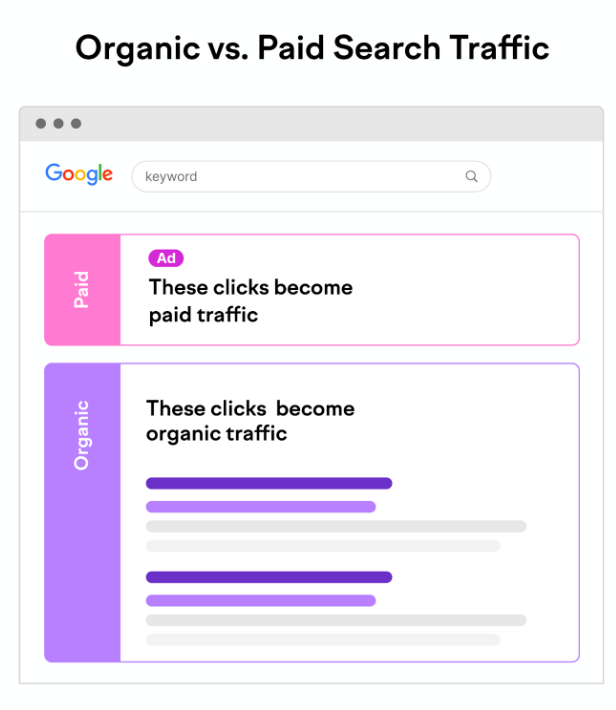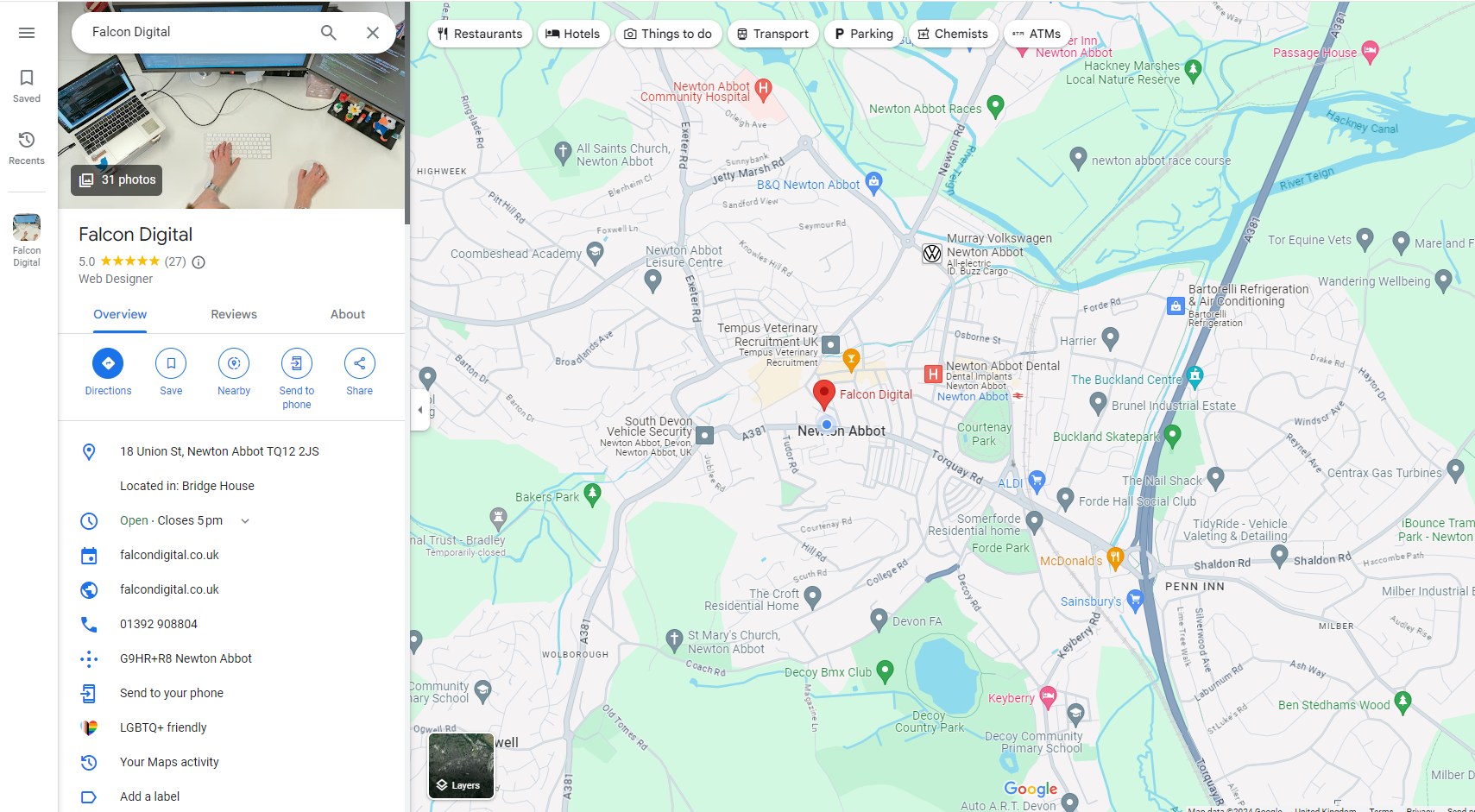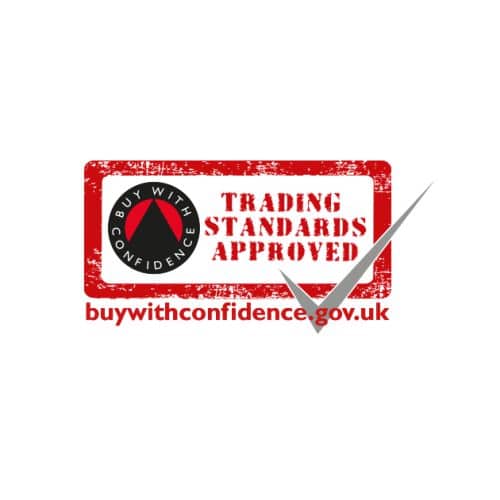What is Organic Traffic?
Published: 25th July 2024
So, What is organic traffic?
Organic traffic refers to the visitors who arrive at your website through unpaid search results, in contrast to those who come via paid advertisements. To boost the organic traffic to your site, it’s essential to secure high rankings in search results on platforms like Google, Bing, and Yahoo.
Achieving this goal typically involves implementing effective search engine optimisation (SEO) strategies. On the other hand, there’s also paid search traffic, which consists of visitors who click on pay-per-click (PPC) ads displayed on the search results page.
Besides search traffic, websites can also attract the following types of traffic:
- Direct traffic: visits that come directly by entering the URL in the browser’s search bar
- Referral traffic: visits that come through links on other websites
- Social traffic: traffic that comes from posts on social media sites (organic or paid)
These website traffic categories are typically used in website analytics tools such as Google Analytics.

Benefits of Organic Website Traffic
Some advantages of organic traffic include:
- It’s free
- You can reach people who have never heard of your brand before.
- You can bring visitors with a relevant and specific intent to your site.
- You can reach people worldwide.
- It can be targeted and scaled with a content/SEO strategy.
- It can build your credibility.
- The search engine market is growing.
However, organic traffic also has its downsides:
- Organic traffic growth can be slow compared with paid search traffic.
- Not every search ends in a click (zero-click searches).
- Although the traffic is free, there are still investments that must be made to see results, both in terms of SEO and content creation.
Organic vs. Paid Traffic Value
A major distinction between organic and paid traffic lies in their costs. Running paid search campaigns can be quite costly, especially when targeting popular keywords that may charge hundreds of dollars for each click. These expenses can accumulate rapidly, leading to a significant budget outlay for only a handful of clicks.
On the other hand, organic traffic can yield a substantial number of clicks without a direct financial burden, offering a more cost-effective approach in the long run.

How to increase organic traffic
To increase your organic traffic, you need to have a consistent SEO strategy and follow SEO best practices.
Here are four key SEO areas you have to cover to improve your rankings and get more organic traffic to your website:
- Keyword research: finding and analysing search queries that people use in order to target them with your content
- Content creation and optimisation: developing high-quality, relevant content that is optimised to rank well in search engines
- Technical SEO: Optimising the technical aspects of a website to help search engines crawl and index the site
- Link building: Getting high-quality backlinks to improve a site’s authority and visibility
By optimising your website for the keywords your audience searches on Google, you can connect with them exactly when they’re searching for something specific—without the need to pay for each click.
Let’s look at three specific steps you can take today to get started on your organic traffic journey:
- Audit your website for technical issues.
- Find keywords to drive your SEO strategy.
- Set up a Google Business Profile (if applicable).
Let’s break them down one by one.
Step 1: Audit your website for technical issues.
For Google to effectively crawl and index your website, it’s essential that the content be accessible and well-structured. Once the audit is complete, you’ll receive a comprehensive report detailing your site’s overall performance, highlighted by the “Site Health” score. This will help you identify problems such as missing images, faulty links, duplicate titles, slow-loading pages, and various other concerns.
Step 2: Find Keywords to Drive Your SEO Strategy
Conducting keyword research allows you to uncover potential subjects for your website that can attract more organic visitors. From there, you can compile a list of relevant keywords and develop content tailored to those terms. One effective and straightforward method for discovering valuable keywords is to analyse what your competitors are using.
When picking the keywords, consider these three metrics:
- Volume: the search volume of the keyword (i.e., how many times per month do people search for the keyword on average?)
- KD%: keyword difficulty—how hard it is to rank for the keyword on a scale from 0 to 100
- Intent: the search intent behind the keyword (i.e., what kind of content do people expect to see?)
Your objective is to strike a balance between keywords that have a high search volume and those that are less competitive. Once you identify these keywords, it’s essential to create content that meets the needs of the searchers. After pinpointing the keywords that align with your business strategy, focus on crafting content that truly resonates with the intent behind the search and offers genuine value to your readers.
By prioritising the creation of top-notch content that fulfils the user’s requirements, you can position yourself as an authority in your field, attract backlinks, and earn the trust of your audience. Ultimately, this approach will result in increased conversions. As you drive more organic traffic to your website, you can guide these new visitors to your key pages and turn them into customers.
Step 3: Set up your Google Business Profile (if applicable).
If your business involves direct customer interaction, creating a Google Business Profile is essential. It’s a vital part of local SEO that helps ensure your business shows up in local search results, including the Google Map Pack.

Setting up a Google Business Profile doesn’t take long.
How to check organic traffic
If you are a website owner, you can view organic traffic statistics about your site for free with:
With these tools, you can only check the organic traffic for a verified property—a website you own.

Start growing your organic traffic with SEO today.
Are you ready to take your business to the next level and achieve lasting growth? Now is the ideal moment to connect with us at Falcon Digital. We specialise in search engine optimisation (SEO) that enhances your online presence while delivering genuine, long-term results. Our committed team recognises that every business has its own unique needs, which is why we customise our strategies to align with your specific goals.
Whether you run a small local business or manage a larger company, our all-encompassing approach to SEO will help you improve your search engine rankings, draw in valuable traffic, and transform leads into devoted customers. Since our founding in 2012, Falcon Digital has earned a reputation as a reliable partner in the digital marketing sector. We take pride in our dedication to supporting businesses in the fast-paced digital world.
Our skilled team is passionate about achieving results, and we stay updated on the latest developments and algorithm shifts to keep your strategy on point. When you choose to work with us, you can count on our relentless effort to help you reach your objectives and enhance your online visibility.







Email [email protected]
Phone 01392 908804
Office Hours
9am - 5pm Mon-Fri
Office Address
Falcon Digital, Office 6, 6 St Paul's Road, Newton Abbot, Devon, TQ12 2HP
Other Services
Company Registration no:
13682575
VAT Registration Number:
GB 437 7229 74

